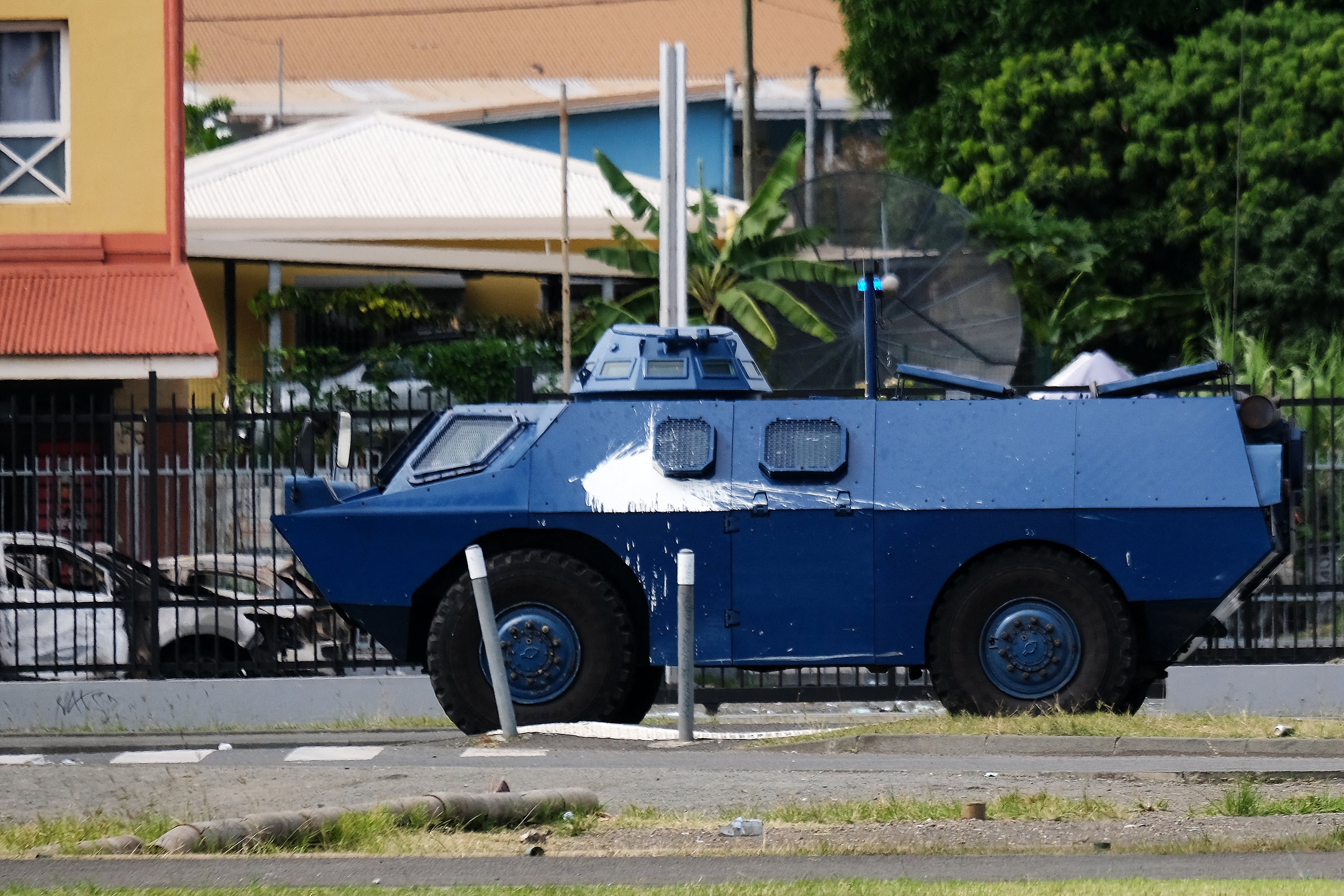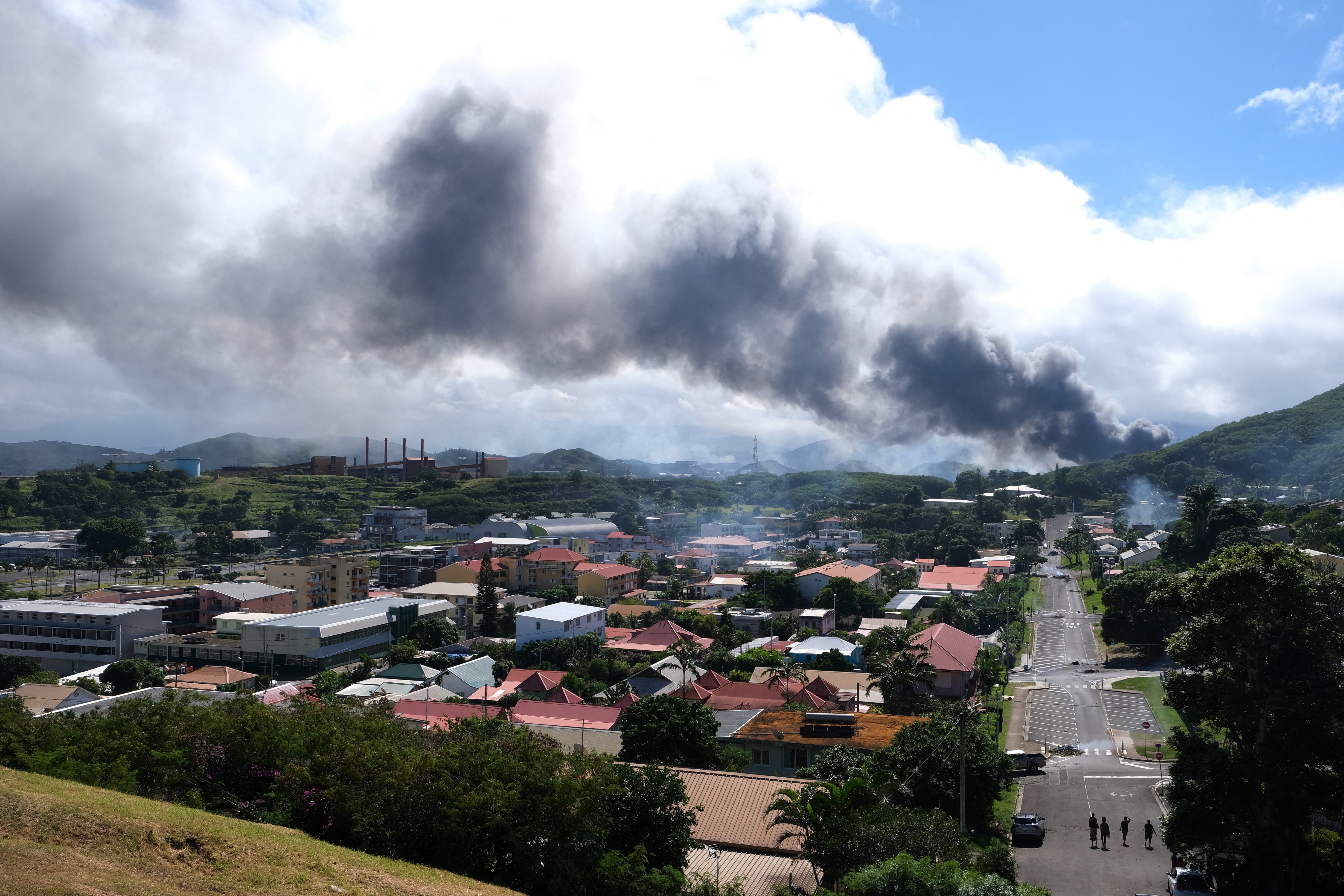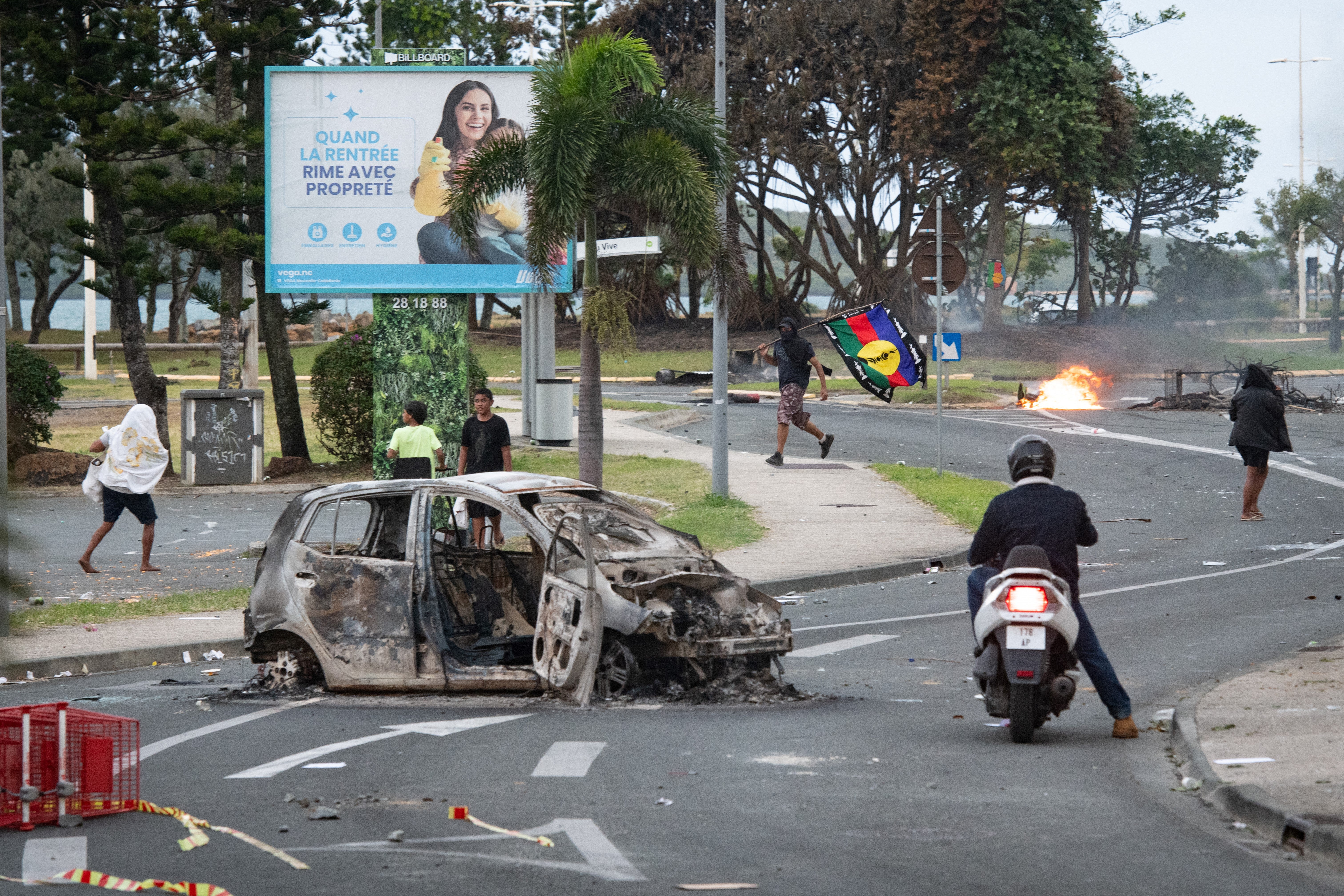New Caledonia: How the deadly riots started and why France wants influence in the Pacific
New Caledoni is the world’s number three nickel producer and lies at the heart of a geopolitically complex maritime region

Your support helps us to tell the story
From reproductive rights to climate change to Big Tech, The Independent is on the ground when the story is developing. Whether it's investigating the financials of Elon Musk's pro-Trump PAC or producing our latest documentary, 'The A Word', which shines a light on the American women fighting for reproductive rights, we know how important it is to parse out the facts from the messaging.
At such a critical moment in US history, we need reporters on the ground. Your donation allows us to keep sending journalists to speak to both sides of the story.
The Independent is trusted by Americans across the entire political spectrum. And unlike many other quality news outlets, we choose not to lock Americans out of our reporting and analysis with paywalls. We believe quality journalism should be available to everyone, paid for by those who can afford it.
Your support makes all the difference.Deadly violence has erupted in New Caledonia after Paris approved a constitutional amendment to allow recent arrivals to the territory to vote in provincial elections.
The amendment, which some local leaders fear will dilute the vote of the indigenous Kanak, is the latest flashpoint in a decades-long tussle over France’s role in the island.
At least three people have died in the protests, which prompted authorities to shut the international airport and schools and impose a curfew in the capital Noumea, where businesses and vehicles were set alight.
On Wednesday, a person was fatally shot in the French Pacific territory as violent unrest over a constitutional reform pushed by Paris led to anger on the archipelago, which has long sought independence.
Where is New Caledonia?
Set in the warm waters of the southwest Pacific, some 1,500 km (930 miles) east of Australia, New Caledonia is home to 270,000 people, including 41% Melanesian Kanaks and 24% of European origin, mostly French.
The archipelago was given its name by British explorer Captain James Cook in 1774. It was annexed by France in 1853 and was used as a penal colony until shortly before the turn of the 20th century.
Why does it matter?
New Caledonia, one of five island territories spanning the Indo-Pacific held by France, is central to Macron’s plan to increase French influence in the Pacific.

The world’s No. 3 nickel producer, New Caledonia lies at the heart of a geopolitically complex maritime region, where China and the United States are jostling for power and influence in security and trade. Without naming China, Macron has previously said France’s drive to expand its influence in the Pacific was to ensure a “rules-based development.”
What is the history with France?
After France’s colonisation in the 19th century, New Caledonia officially became a French overseas territory in 1946. Starting in the 1970s, in the wake of a nickel boom that drew outsiders, tensions rose on the island, with various conflicts between Paris and Kanak independence movements.

A 1998 accord helped end the conflict by outlining a path to gradual autonomy and restricting voting to the indigenous Kanak and migrants living in New Caledonia before 1998. The accord allowed for three referendums to determine the future of the country. In all three, independence was rejected.
“Tonight, France is more beautiful because New Caledonia has decided to stay part of it,” Macron said after the result of the most recent vote in 2021. Nonetheless, the 2021 poll was boycotted by pro-independence parties due to the coronavirus pandemic, and there remains lingering scepticism over the legitimacy of the result.
Why have the riots happened now?
Under the terms of the Nouma Accord, voting in provincial elections was restricted to people who had resided in New Caledonia prior to 1998, and their children. The measure was aimed at giving greater representation to the Kanaks, who had become a minority population.
Paris has come to view the arrangement as undemocratic and lawmakers approved a constitutional amendment to open up the electorate to include people who have lived in New Caledonia for at least 10 years.
Macron has said he will delay rubber-stamping it into law, and invite representatives of the territory’s population to Paris for talks to reach a negotiated settlement. However, he said a new agreement must be reached by June, or he will sign it into law.
Join our commenting forum
Join thought-provoking conversations, follow other Independent readers and see their replies
Comments